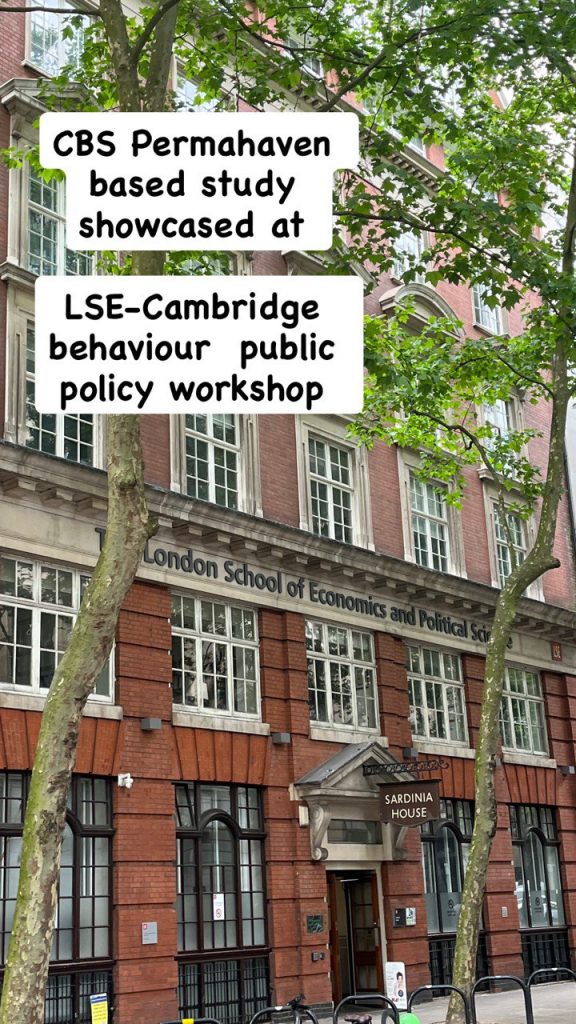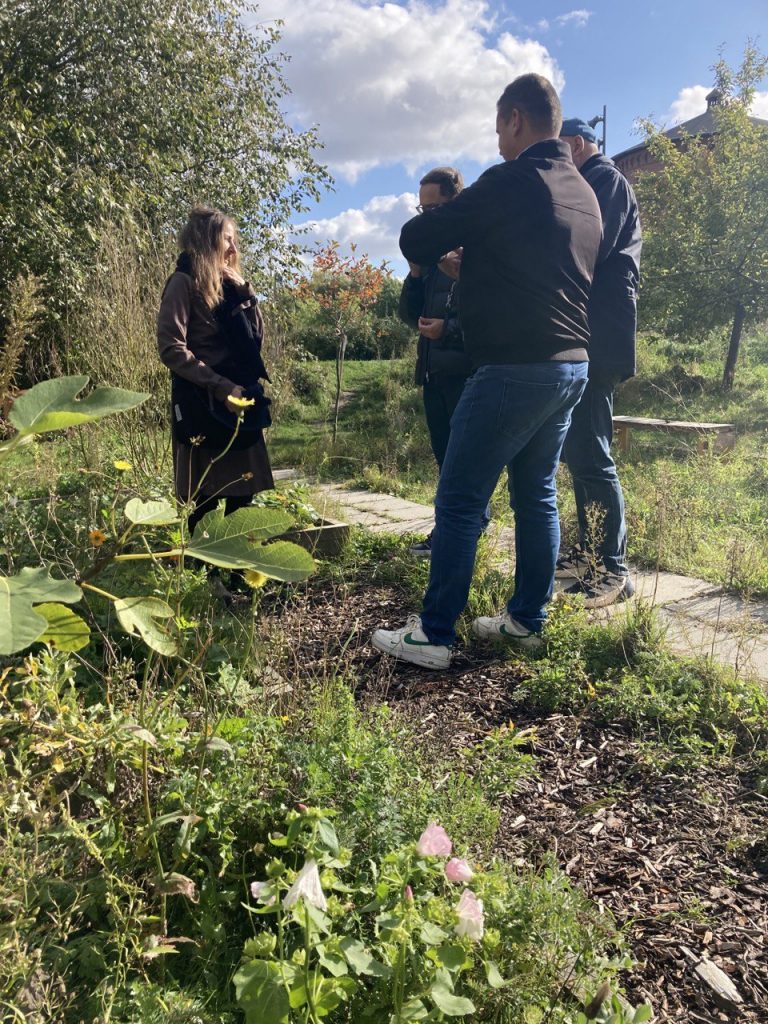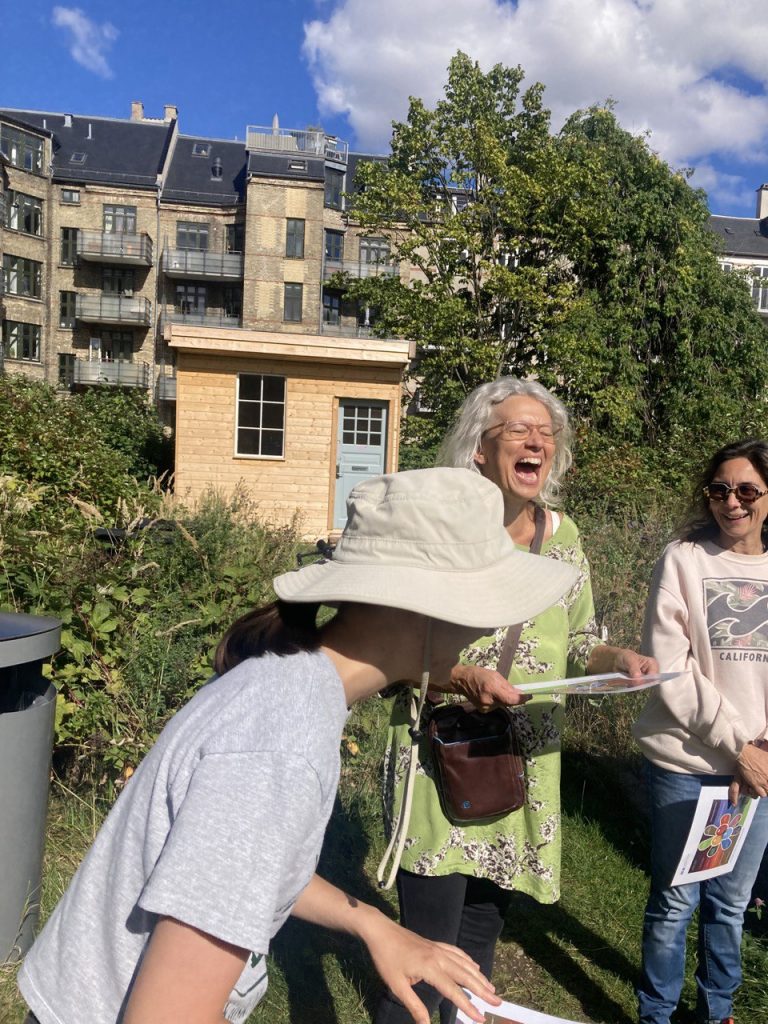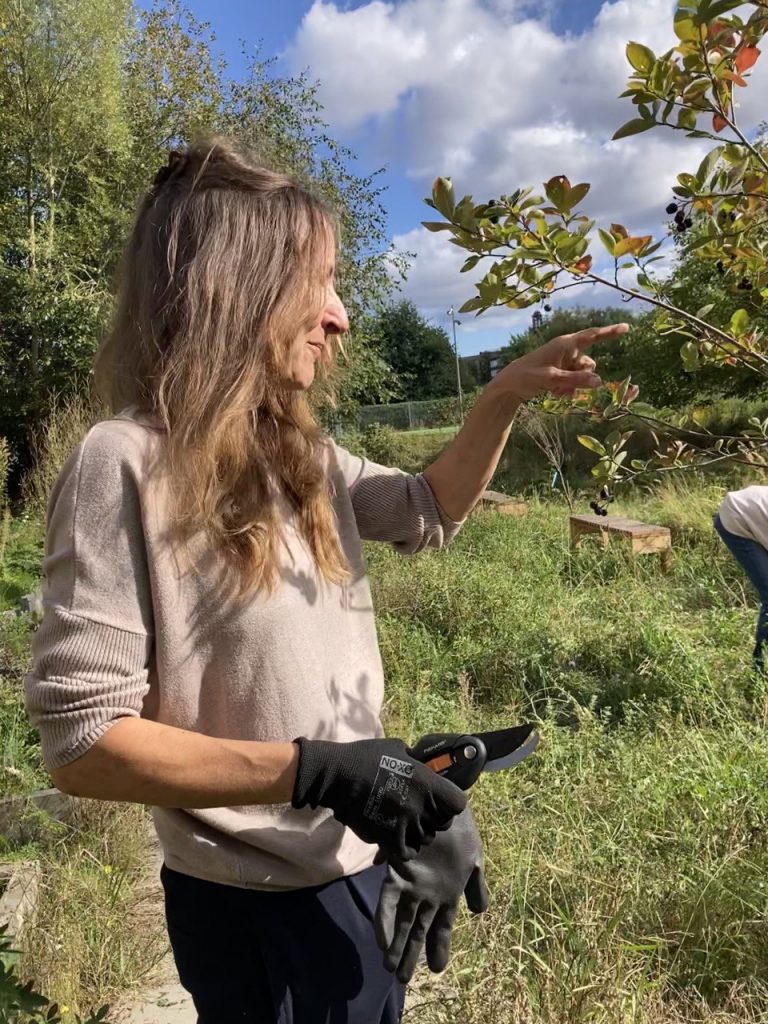We are thrilled to share that Permahaven was featured at the LSE–Cambridge International Behavioural Public Policy Workshop, a leading annual event co-organized by the International Behavioural Public Policy Association (IBPPA), the London School of Economics, and the University of Cambridge.

Research Highlight: Cultivating Engagement through Identity Framing
The research, by Albina Dioba (CBS) in collaboration with Kennet Christian Uggeldahl (UCPH) and Isabel Fróes (CBS), explored how identity framing can influence young people’s engagement in collective urban gardening. Our experimental field trial at Permahaven, CBS’s permaculture garden, investigated how different identity-based messaging can nudge students toward pro-environmental action.
Key finding:
Students exposed to peer-group social identity framing were 14.5% more likely to engage compared to the control group (p = 0.022).
Environmental framing showed no significant effect in this setting.
These findings support growing evidence that Gen Z responds more strongly to peer-based appeals than purely environmental ones, especially when it comes to collective, hands-on initiatives like urban gardening.
Why This Matters
By applying behavioural science in real-world contexts like Permahaven, we aim to co-create policy-relevant insights that support meaningful and inclusive sustainability transitions. This work aligns with Permahaven’s mission to:
- Integrate head-hands-heart learning into higher education,
- Foster regenerative sustainability practices,
- Empower youth through community-centred climate action.





